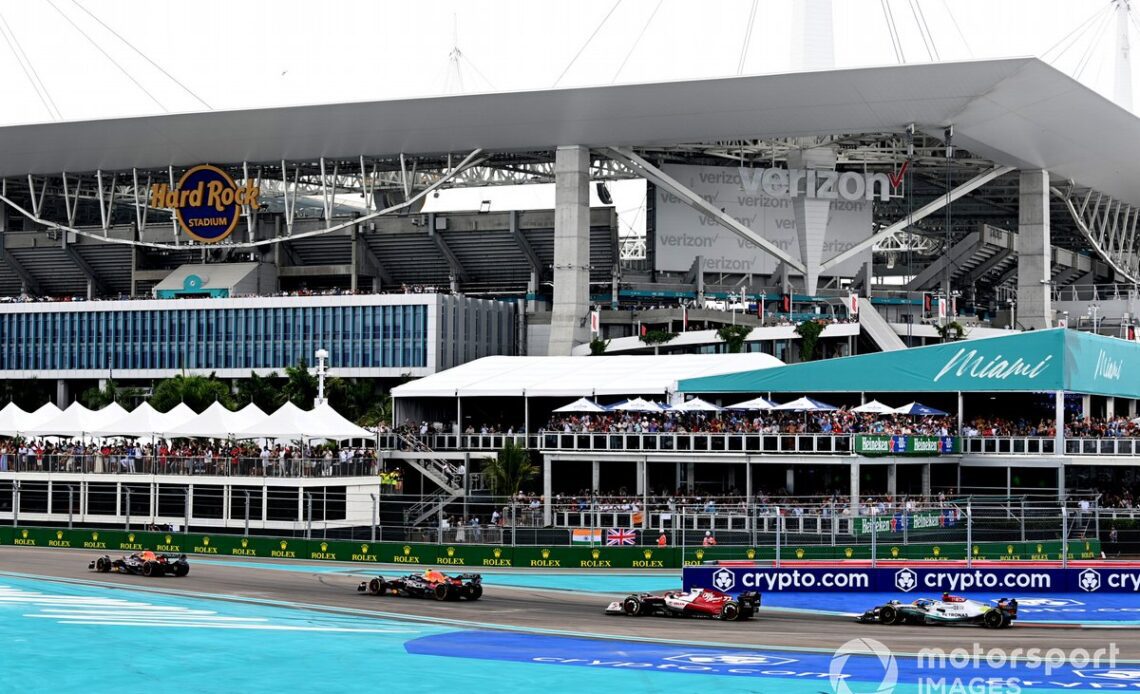The surge in interest from potential race hosts reflected F1’s continued growth and commercial boom, something that is undeniably a good thing for everyone associated with the championship.
But the number of races – ultimately knocked down to 23 after China’s cancellation – only fuelled concerns about the well-being of those working the entirety of the gruelling schedule, and the continued impact it would have on their lives away from F1.
The other big question many had was the reason for the scheduling of certain races at certain points. Given there had been an indication F1 would look to better group the races by region, to end up with Australia as a standalone, Baku and Miami as a back-to-back and final double-header of Las Vegas and Abu Dhabi seemed to fly in the face of that.
Fitting an F1 calendar around all the various promoter requirements is a challenge, meaning a significant shift in the schedule in one fell swoop was always going to be difficult. Efforts were made to move races, reaching as far up as the highest levels of government in some cases. But with contracts already in place, it proved impossible.
Yet as F1 continues with its plan to reach net zero carbon by 2030, how do the demands of the ever-expanding calendar match up with its sustainability goals?
Ellen Jones has served as F1’s head of sustainability since early 2022. In a series known for its innovation and ability to find fresh solutions to problems, she felt it was the perfect platform to further sustainability plans. Not only could the technical experience of the finest minds in the sector be harnessed to help develop the plans and enact true culture change, but the reach of F1 also made it an attractive platform to try and spread the message.
“It doesn’t get bigger from an impact side, be it from people’s interests but also from people’s experience,” says Jones. “We race around the world. We have an important voice in showing what sustainability can look like in real life in the context of our events. That’s a great opportunity, but a lot of work.”
F1 will go to Miami the week after Baku, putting the championship’s sustainability goals into question
Photo by: Mark Sutton / Motorsport Images
Working closely with the race promoters has been an important part of F1’s sustainability plans. Each race is given targets across a number of areas relating to their environmental impact, which can then be tracked. These concern waste and recycling, energy…
Click Here to Read the Full Original Article at Motorsport.com – Formula 1 – Stories…

